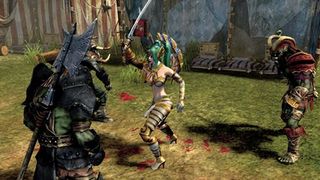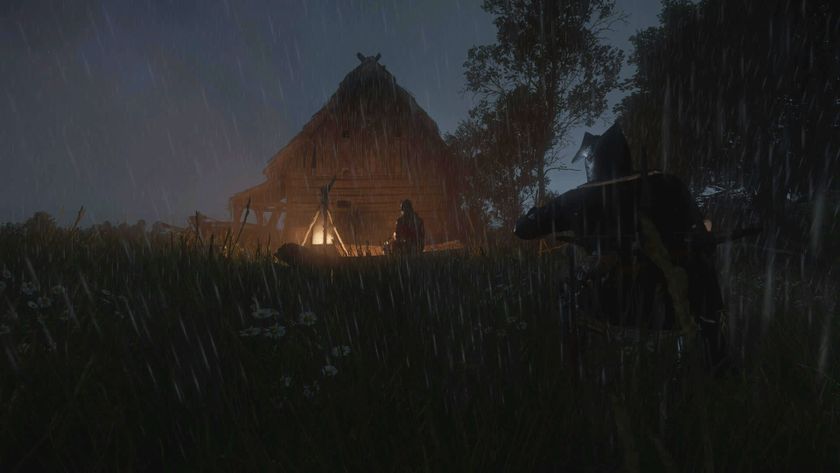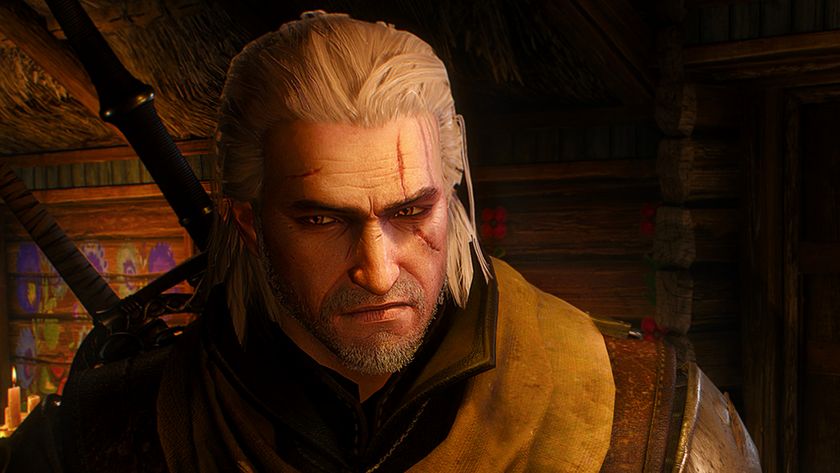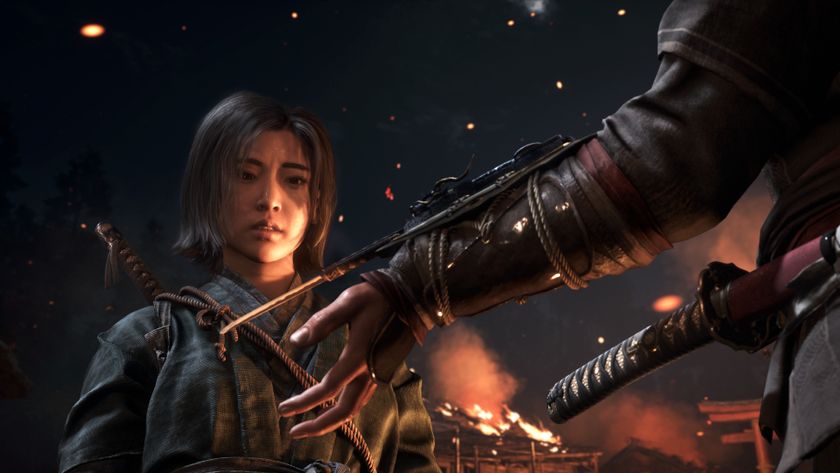“Everyone loves the tiger,” complains the man showing me the opening levels. “You shouldn’t have made the fur look so nice,” we answered – this is some of the shiniest, furriest fur you’ll see. Moreover, the interesting classes of the first game have been built on; the first game had Vampiress and Seraphim, now we have Shadow Knights and the quirky Temple Guardian. The Guardian in particular seems excellent – he was technically under wraps, but from what we could get people to say, he sounds arcane, mechanical and gruesome.
Multiplayer was important in the first game – four-player co-op, and 16-man servers – and they’re building heavily on that in the sequel; with a dip-in approach that edges the game towards an MMO. The point is to make it easy enough to allow quick and fluid link-ups. It’ll be released on PC, PS3, and Xbox 360, so ease of multiplayer connection will be a priority.

One thing the first game wasn’t lacking was size and variety. What are on display now are the distinct environments we’d expect, from spider-infested woodlands, to canyons and towns. Importantly, the whole online area is geared toward PvP, so using our freshly-learned area-of-effect ice spells on a group of spiders, we managed to accidentally kill a fellow adventurer. That’s another new feature for Sacred 2: you can follow light or dark quest paths, depending on your starting race. This also gives you your PvP factions in multiplayer, and in the single-player, it increases replayability.
This is all encouraging – improvements are definitely being made. However, the main part of the first game that was repeatedly dragged into the garden and duffed up was the storyline. If you’re the kind of person who thought the coolest thing about Final Fantasy VII was realising that the Mimic spell could let you endlessly chain the Knights of the Round summon, then the storyline might not be so important to you. If, however, the moment of Aeris’ death was the moment that you knew you had to play this game to the end, just to get your revenge on that bastard – you’ll want some emotional investment in your characters.
Sign up to the 12DOVE Newsletter
Weekly digests, tales from the communities you love, and more

Kingdom Come: Deliverance 2 devs chased down a 600-year-old star map for the sake of historical accuracy and immersion, and it should "be useful for Hardcore Mode"

The Witcher series' new book offers a blast to Geralt's teenage past dubbed Crossroads of Ravens, and it'll be out in English this fall
Most Popular





